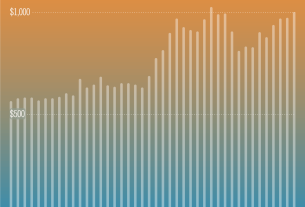Undocumented immigration in the United States remains a significant issue, and many Irish citizens find themselves among the estimated 11 million undocumented immigrants living in the U.S. While some Irish nationals become undocumented due to overstaying work or student visas, a significant number fall into this category through overstaying their time under the Visa Waiver Program (VWP).
The VWP allows citizens of certain countries, including Ireland, to visit the U.S. for short-term purposes without requiring a visa, but this convenience also poses a risk of overstaying, which can lead to undocumented status. For those who overstay and are unable to extend their stay due to financial constraints or other reasons, financial assistance and strategic policy support become key to avoiding or mitigating these consequences. This article explores how Irish citizens become undocumented, the challenges they face, and the role of the Irish government and embassy in providing support, including financial assistance, to prevent and address overstays.
What is the Visa Waiver Program (VWP)?
The Visa Waiver Program (VWP) allows nationals from specific countries, including Ireland, to travel to the United States for up to 90 days for tourism or business purposes without obtaining a visa. The program is designed to make short-term travel easier and more efficient for visitors from eligible countries.
Key features of the VWP include:
- 90-day limit: Irish citizens, along with those from other VWP countries, can enter the U.S. for up to 90 days for tourism or business.
- No visa required: Travelers using the VWP do not need to apply for a visa before entering the U.S., making the process quicker and less costly.
- No extension or status change: Once in the U.S. under the VWP, visitors cannot extend their stay or change their immigration status (e.g., switching to a work visa or obtaining a green card) without leaving the country.
However, if a visitor overstays this 90-day period, they automatically become undocumented, which carries serious consequences, including the risk of detention, deportation, and being barred from reentry for several years.
How Irish Citizens Become Undocumented Through Visa Waiver Overstay
While many travelers enter the U.S. under the VWP with the intention of staying only for the 90-day limit, circumstances often change, leading to overstays. The most common reasons for overstaying the VWP include:
1. Failure to Depart on Time
Some Irish nationals may simply fail to leave the U.S. by the end of their allowed 90-day stay. They may decide to extend their vacation, look for work, or stay longer to visit family. This can happen unintentionally, especially if they are unaware of the strict deadlines for departure or if they lack the financial means to return home.
- Example: An Irish citizen may travel to the U.S. under the VWP to visit family. After spending some time with relatives, they decide to stay for an extra month but don’t realize that overstaying by even a few days can result in legal penalties, including the possibility of being barred from reentry.
2. Change in Circumstances or Intentions
Some visitors initially enter the U.S. with the intent of staying only for a short period but may later decide to stay longer. This might be due to finding employment, pursuing an education, or engaging in family-related matters, but the VWP doesn’t allow for a change of status or visa extension.
- Example: A young Irish national enters the U.S. under the VWP for a vacation but then finds a job offer that would allow them to stay longer. However, since the VWP does not permit an extension or change of status, they may become undocumented if they remain beyond the 90-day limit.
3. Financial Barriers to Departing
Many Irish citizens who overstay may face financial barriers to returning home, particularly in cases where travel costs become prohibitive. Individuals who are unemployed, underpaid, or in difficult financial situations may struggle to afford flights home, and in such cases, they may remain in the U.S. longer than their legal status allows, inadvertently becoming undocumented.
- Example: An Irish tourist who runs out of money and can’t afford a plane ticket back home might have no choice but to overstay, potentially leading to a situation where they are out of status without any viable means to correct it.
The Challenges Faced by Irish Nationals Who Overstay
Undocumented Irish citizens face a range of challenges that can affect their safety, security, and quality of life in the U.S. These include:
- Fear of Deportation: Overstayers live in constant fear of being detained by immigration authorities and deported. This fear often prevents them from accessing essential services, such as healthcare, housing, or legal assistance.
- Limited Employment Opportunities: Without legal status, undocumented immigrants cannot work legally in the U.S., which leads to economic instability. They may resort to working in the informal economy, often with lower wages and poor working conditions.
- Lack of Access to Social Services: Undocumented immigrants do not have access to public services or benefits, such as healthcare, unemployment benefits, or public assistance programs, which leaves them vulnerable to economic hardship.
- Family Separation: Those who have family members in the U.S. (e.g., U.S. citizen children or spouses) may face the possibility of being separated from their loved ones if they are caught by immigration authorities.
Preventing Visa Waiver Overstays and Financial Assistance for Those Affected
There are several strategies that the Irish government and embassy could pursue to help prevent Irish nationals from overstaying their VWP status, as well as provide support to those who have already overstayed due to financial reasons.
1. Prevention: Educating Travelers and Raising Awareness
One of the most effective ways to reduce visa waiver overstays is to educate Irish citizens about the risks and responsibilities of using the VWP. This could include:
- Awareness Campaigns: The Irish government, in partnership with the U.S. Embassy, can run awareness campaigns to inform Irish nationals about the importance of adhering to the 90-day limit under the VWP. These campaigns should emphasize the legal consequences of overstaying, as well as the challenges undocumented immigrants face, including deportation and a possible ban on reentry.
- Clearer Communication of Rules: The Irish government can work with the U.S. Embassy to provide clearer information on visa requirements and deadlines. This could include distributing flyers, videos, and online content about the legal implications of overstaying and the financial consequences of being caught in undocumented status.
2. Financial Assistance for Irish Nationals Facing Overstay
For those already in the U.S. who have overstayed and face financial difficulties returning home, the Irish government can consider offering financial assistance or facilitating loans for those unable to afford their return flights. While financial aid may be challenging to implement on a large scale, targeted assistance could help avoid the escalation of an undocumented status.
- Emergency Financial Assistance: The Irish government could establish a fund or emergency program to assist Irish nationals who are struggling financially and wish to return home but cannot afford the cost of their plane ticket. This could be administered through the Irish Embassy or consulates in the U.S.
- Loans or Repayment Plans: In cases where emergency grants are not feasible, the Irish government could offer low-interest loans for Irish nationals who find themselves in financial distress. This would allow individuals to return to Ireland while making arrangements to repay the loan over time.
- Referral to Charitable Organizations: The Irish Embassy could collaborate with U.S.-based Irish organizations, such as the American Irish Historical Society or The Irish-American Cultural Institute, to provide financial or logistical assistance to individuals who find themselves in need, including those facing deportation or emergency situations.
3. Legal Pathways for Adjustment of Status
While the VWP does not allow for extensions or status adjustments once the 90-day period has passed, there are potential legal pathways for individuals to correct their status:
- Legal Counsel: The Irish government should ensure that undocumented Irish nationals in the U.S. have access to immigration attorneys who can explore all possible avenues for adjusting their status, such as applying for work visas or seeking asylum.
- Voluntary Departure: In some cases, individuals may qualify for voluntary departure, which allows them to leave the U.S. on their own terms without facing a formal deportation order. The Irish Embassy can provide assistance in these situations by offering legal resources or referrals.
4. Lobbying for Reform: Advocacy for More Flexible Visas
To prevent further Irish nationals from falling into undocumented status, the Irish government could advocate for more flexible immigration policies that allow for easier status adjustments or extensions for visitors on the VWP.
- Extend the VWP or Create Work Visas: Lobbying for the creation of a specific work visa or an extension of the VWP, such as the E-3 visa (available to Australian citizens), could help ensure that Irish citizens have legal means to stay in the U.S. without the risk of becoming undocumented.
- Temporary Protected Status (TPS): In exceptional cases, the Irish government could push for the designation of Temporary Protected Status (TPS) for Irish nationals who have been in the U.S. for an extended period, particularly those who are unable to return due to financial constraints.
Conclusion
Undocumented Irish nationals in the U.S., especially those who have overstayed under the Visa Waiver Program (VWP), face significant challenges, both legal and financial. While the VWP provides a streamlined process for short-term travel, it also leaves travelers vulnerable to overstays if their circumstances change.
The Irish government, along with the U.S. Embassy, has a critical role to play in both preventing overstays through awareness campaigns and providing financial assistance for Irish citizens who are unable to afford their return. By offering emergency financial assistance, creating pathways for status adjustment, and lobbying for changes in U.S. immigration policy, the Irish government can help protect its citizens from the harsh consequences of undocumented status and ensure they are able to return home safely and legally.
Ultimately, addressing the root causes of overstays—financial difficulties, lack of legal understanding, and policy limitations—will help ensure that Irish nationals are better equipped to navigate U.S. immigration laws and avoid falling into undocumented status.



